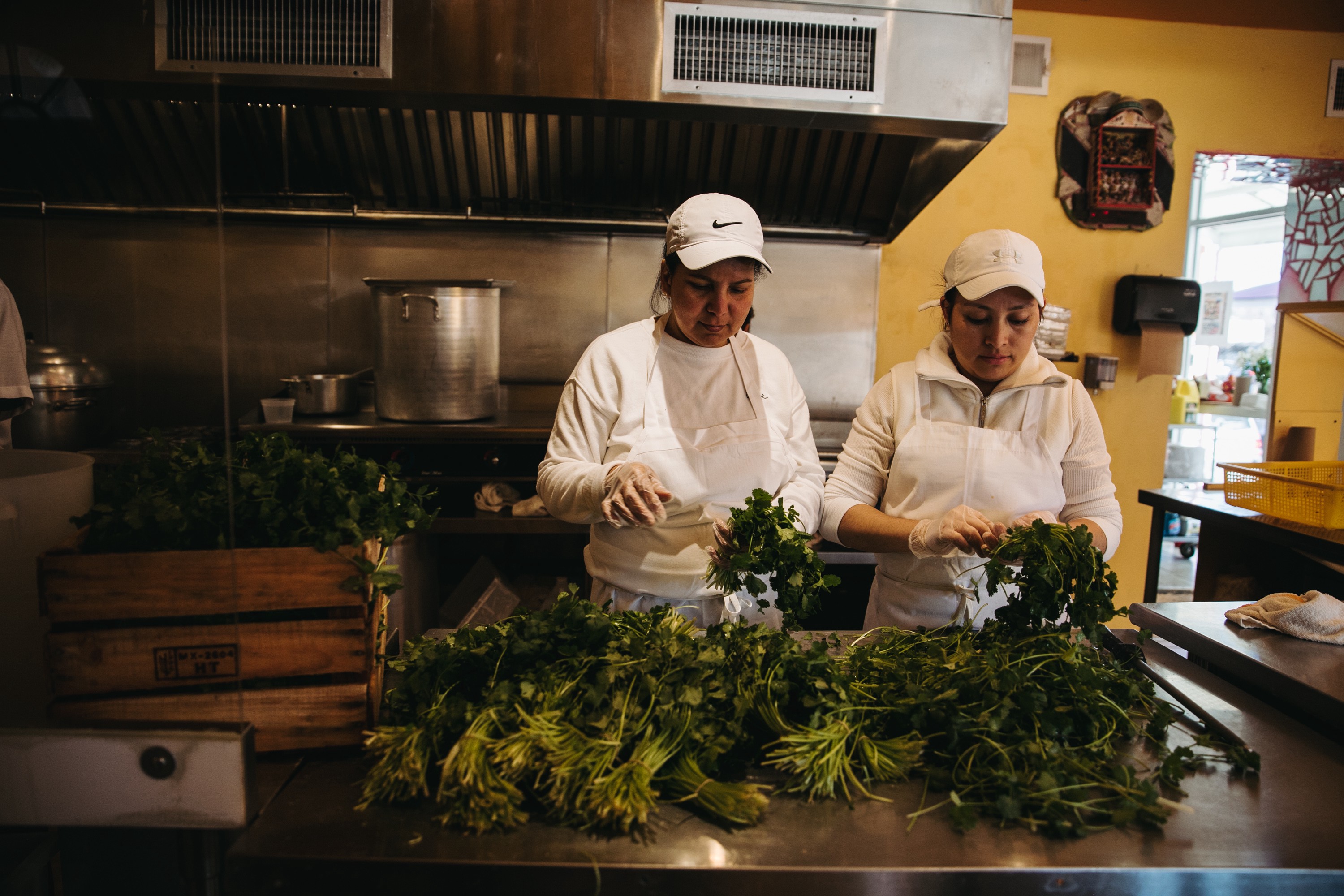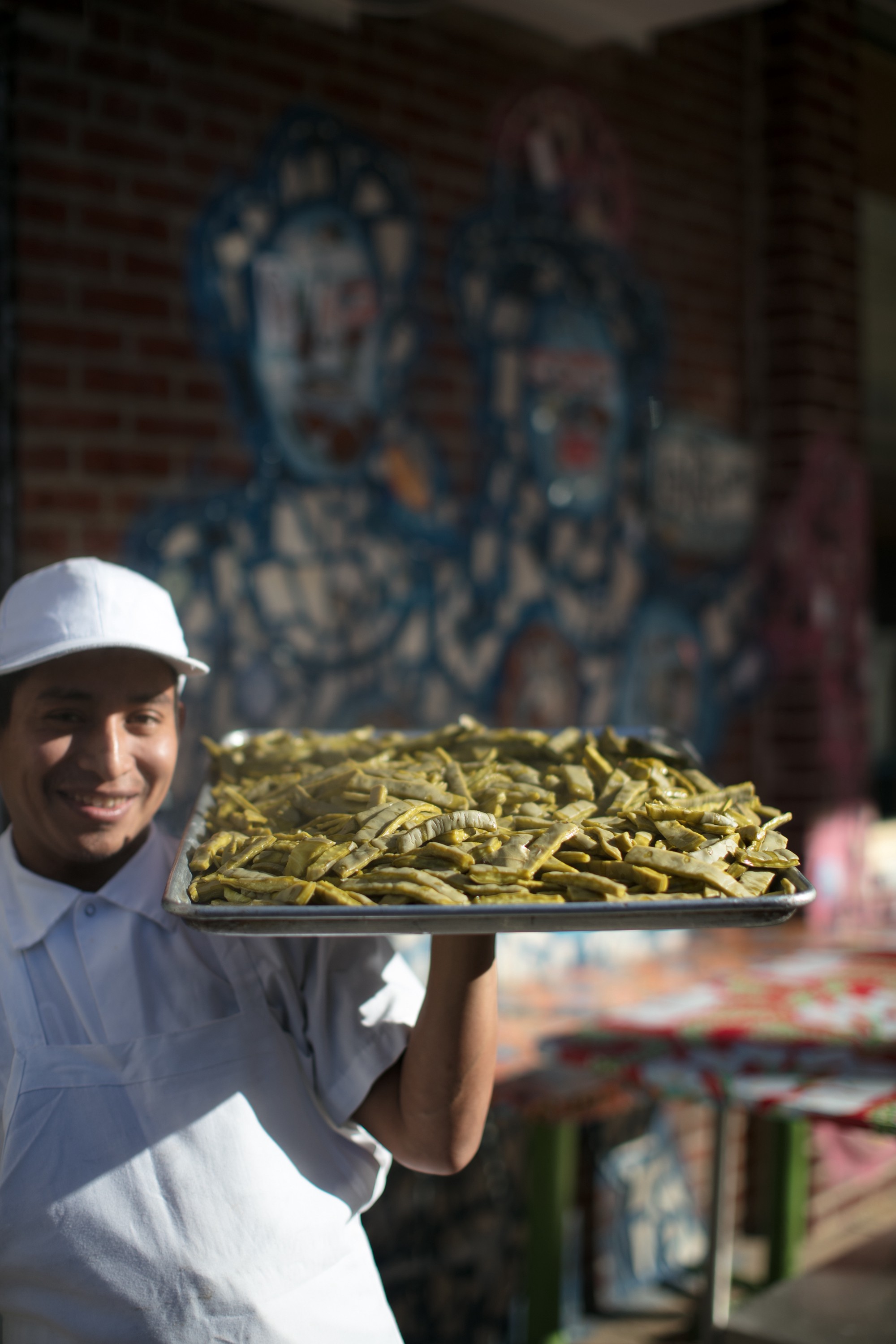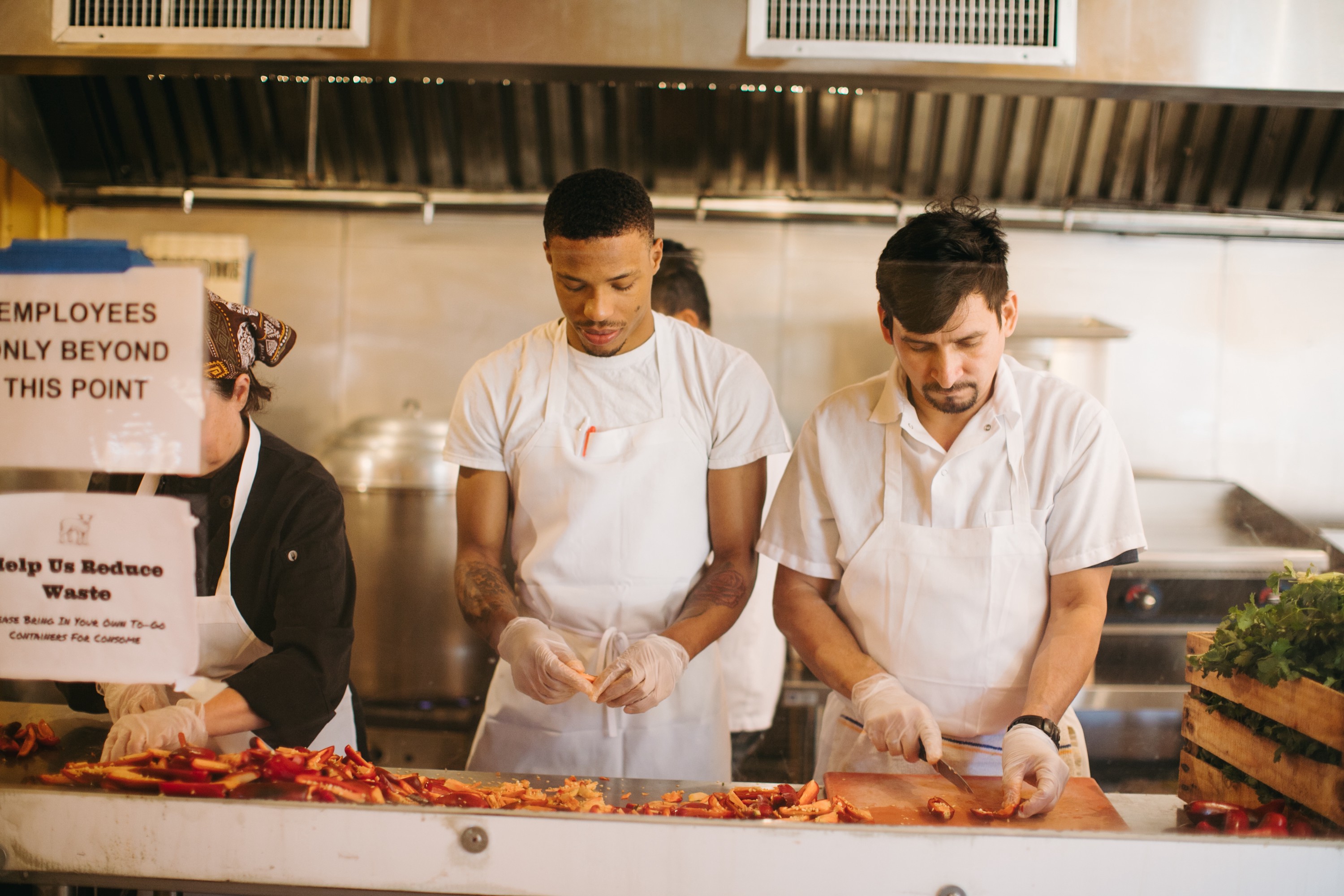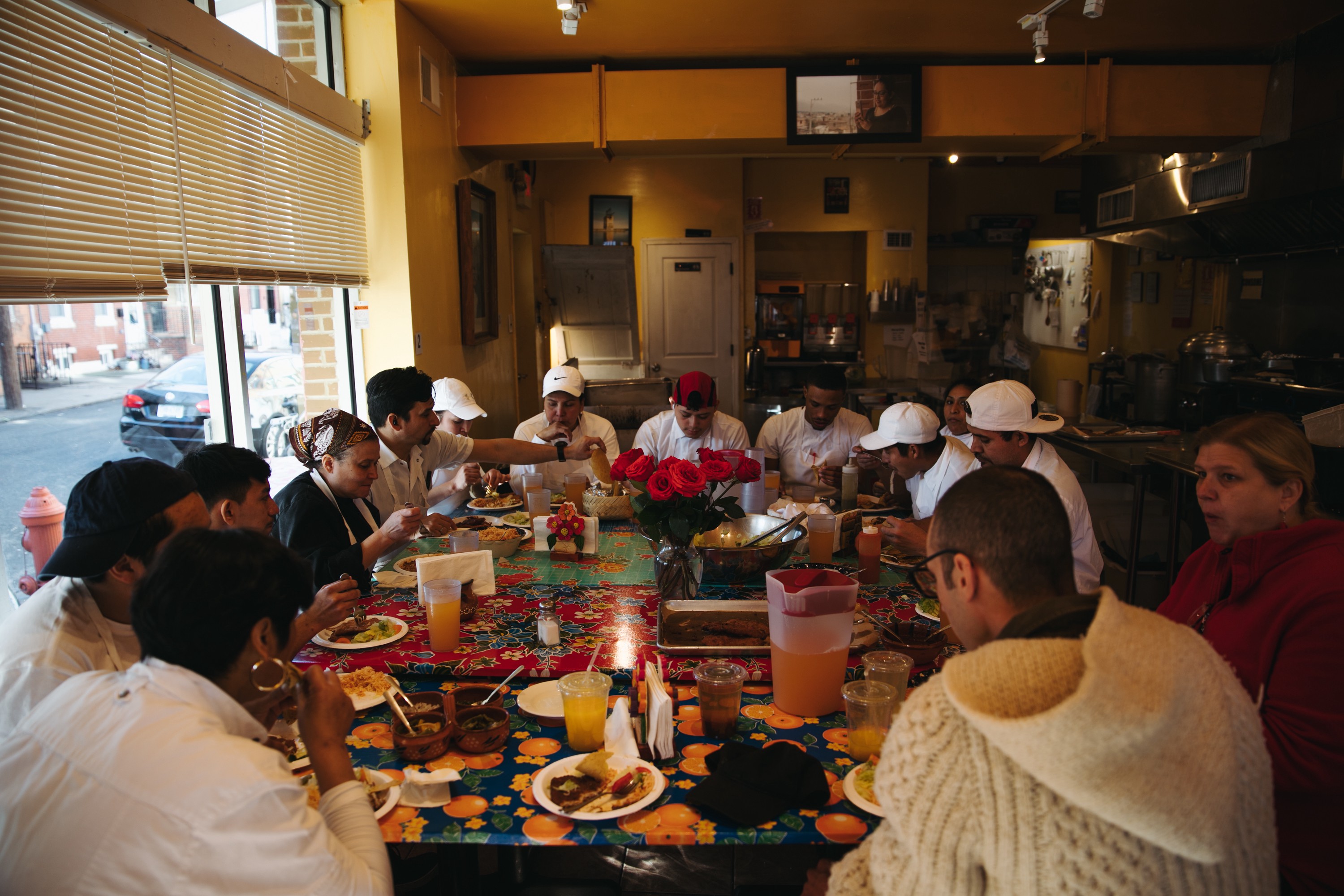Cristina Martinez of South Philly Barbacoa wants her restaurant to be more inclusive
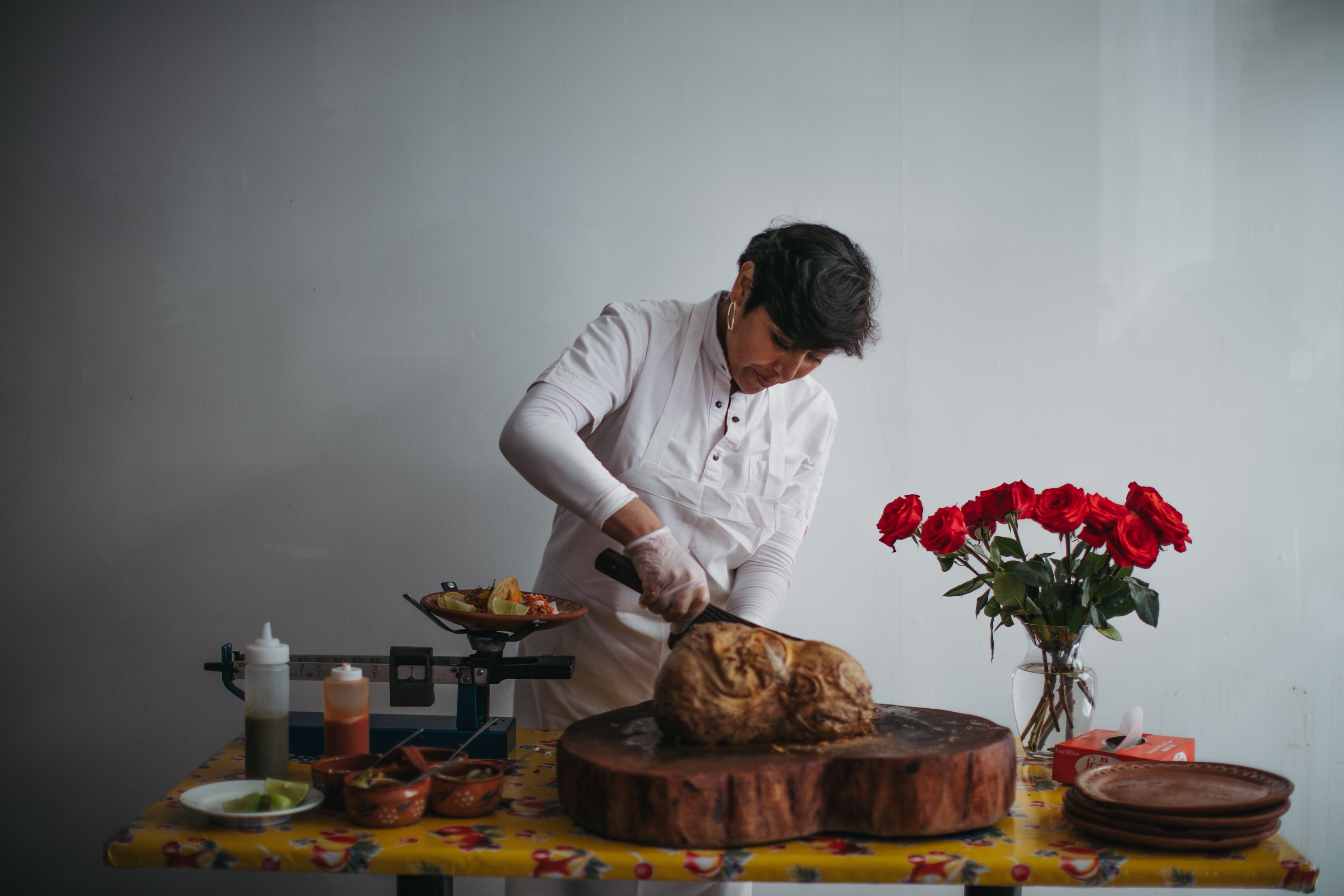 Cristina Martinez of South Philly Barbacoa. Photos: Neal Santos
Cristina Martinez of South Philly Barbacoa. Photos: Neal Santos
Until four years ago, Katera Moore did not eat at Mexican restaurants. ?Even if they have chicken tacos, I would be scared to death because of the pork,? said Moore, an urban geographer with a Ph.D. in earth and environmental studies and one of the roughly 150,000 Muslims living in Philadelphia. ?And even if there?s no language barrier, somebody could just think you?re ridiculous. It?s really risky.?
Moore met Cristina Martinez and Ben Miller, the couple behind the acclaimed taqueria South Philly Barbacoa, at a food justice event at Philadelphia?s central library in 2015, ?and Ben told me that the lamb that they serve was halal and that they really were keeping the lamb separate from the pork. So I took my family; it was great, and we became regulars. It was like, ?Oh my god, more Muslims should know about this because it?s really, really good.??
As an outspoken undocumented person, Martinez knows what it?s like to be part of a marginalized community, and speaking truth to power has been as much a part of the South Philly Barbacoa business plan as the otherworldly tacos. ?It?s all been an intentional shift for the last seven years, trying to get to this point where our restaurant is inclusive and universal, and everybody can be on the same equal plane,? Miller said.
For the first time in the restaurant?s history, that?s truly the case. In the fall, South Philly Barbacoa stopped serving pork.
But wait. Didn?t you say their tacos are lamb?
They are, and it?s always been halal. Before it had a national reputation and lines out the door ? and before Martinez, a native of Capulhuac, Mexico, was a James Beard Best Chef Mid-Atlantic nominee and the star of a heart-rending ?Chef?s Table? episode ? South Philly Barbacoa was just a street cart, parked outside a Mexican bakery on the corner of South 8th and Watkins streets. This was 2014, and even from those early days, the lamb that Martinez wrapped in maguey leaves, steamed, chopped with a vicious cleaver, and pressed into warm tortillas was halal. At the time, the choice was less about inclusivity than quality; the halal lamb was simply the best tasting and most consistent.

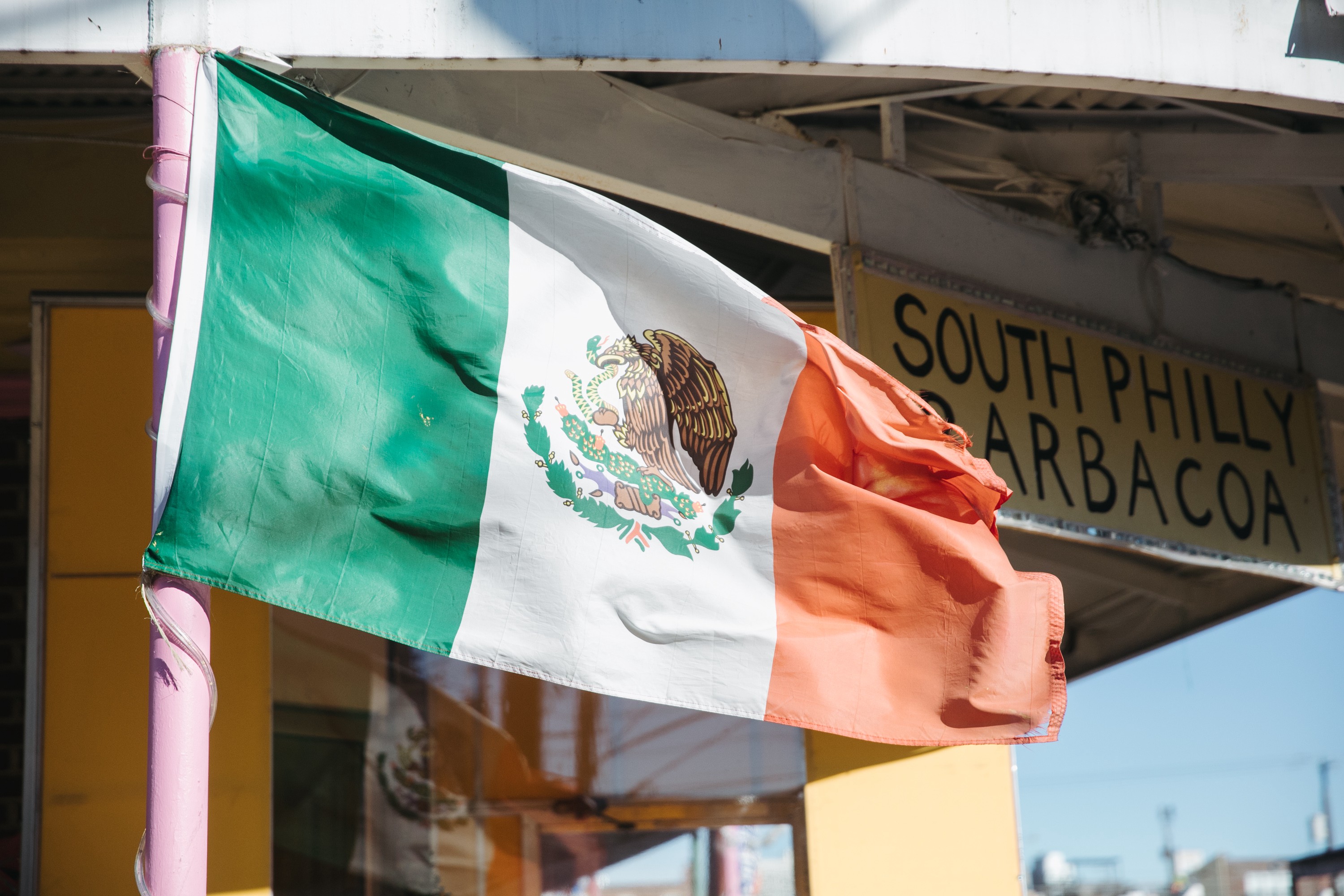
As the restaurant has grown and evolved, Martinez has continued to serve three main items. The first two are tacos de barbacoa, made from the bulk of the meat on the lamb, and tacos de pancita, an aggressively spiced, crumbly mishmash of organs and ground pork cooked in the lamb?s stomach. The third item is their byproduct, the glorious fat-dappled consomm, a blend of barbacoa and pancita broths fortified with chickpeas, rice, and all the drippings.
Previously, when a customer who didn?t eat pork would come in, Miller and Matinez would change gloves, cutting board, and utensils, and if the customer wanted consomm, heat up a reserve batch of the unblended (lamb only) soup. For Moore and her family, the relationship with Miller and Martinez built on mutual respect and understanding made South Philly Barbacoa (currently in its third ? and largest ? brick-and-mortar iteration, in the Italian Market) a safe space. But because there is great variation in dietary strictness among Muslims, what?s safe for one person is not necessarily safe for another.
?There are different levels of what [Muslims] will put in their bodies,? Moore said, from the very strict (only meat that is raised, slaughtered, butchered, and sold by a Muslim) to ?some who are going to eat whatever they?re going to eat and they just want to stay away from pork.?
?It?s really about establishing trust and integrity, and we?ve always been honest with people,? Miller said. ?If you make a mistake, it is a serious transgression. There were still a lot of people that wouldn?t even come in because we had pork in the space.?
The issue hit home last spring, when Miller, Martinez, and three members of their team became licensed to work on the kill floor in the halal slaughterhouse where they buy their lamb. Getting permission to be there and to collect and clean organs for pancita, the way it?s done in Mexico, took years of persistence. ?[The slaughterhouse owners] said no about a zillion times,? Martinez said, speaking through Miller as a translator. ?They were fighting us from the first day. They were really, really, really, nervous about us being in there, allowing us into their space.?
To show her appreciation, one day, Martinez packed up her heat lamp, her chopping block, her cleaver, and enough barbacoa for the slaughterhouse?s staff of 40 and served everyone lunch. ?It was impactful because we want these people to come to our restaurant, too, and we want the owners of the slaughterhouse to come into the restaurant,? she said. ?I?ve been cooking pork all my life. It took seven years to change my heart.?
As of October, South Philly Barbacoa?s pancita, and therefore, consomm, no longer contain pork. For Martinez, it?s a huge deal. Cooking the food of her country and family is central to who she is. Even though she made her career in America by cooking lamb, that few pounds of pork in the pancita is, by extension, also who she is. It would be like an Italian chef forgoing olive oil or a Vietnamese chef giving up fish sauce. It wasn?t easy, she said, but the right thing rarely is.
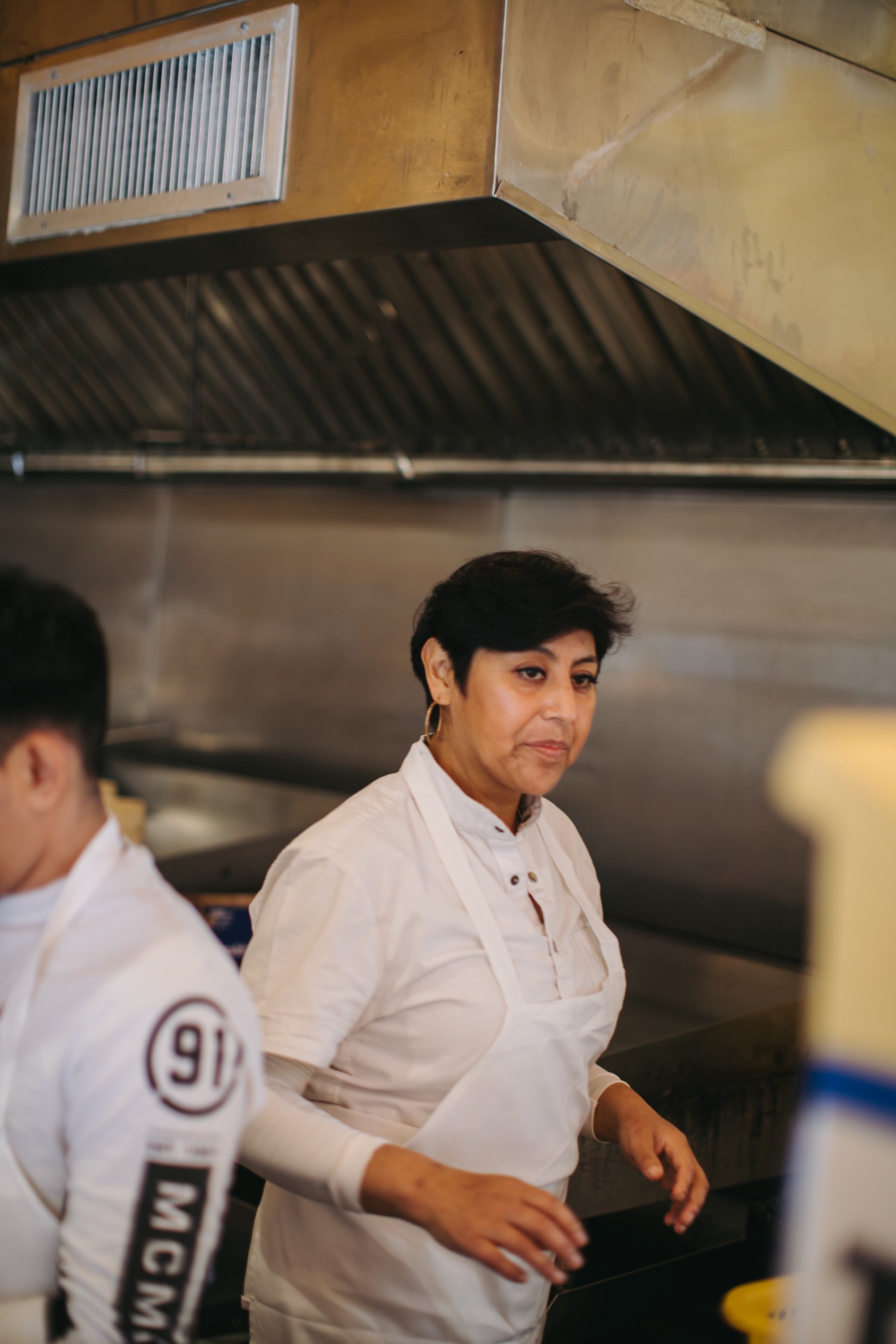
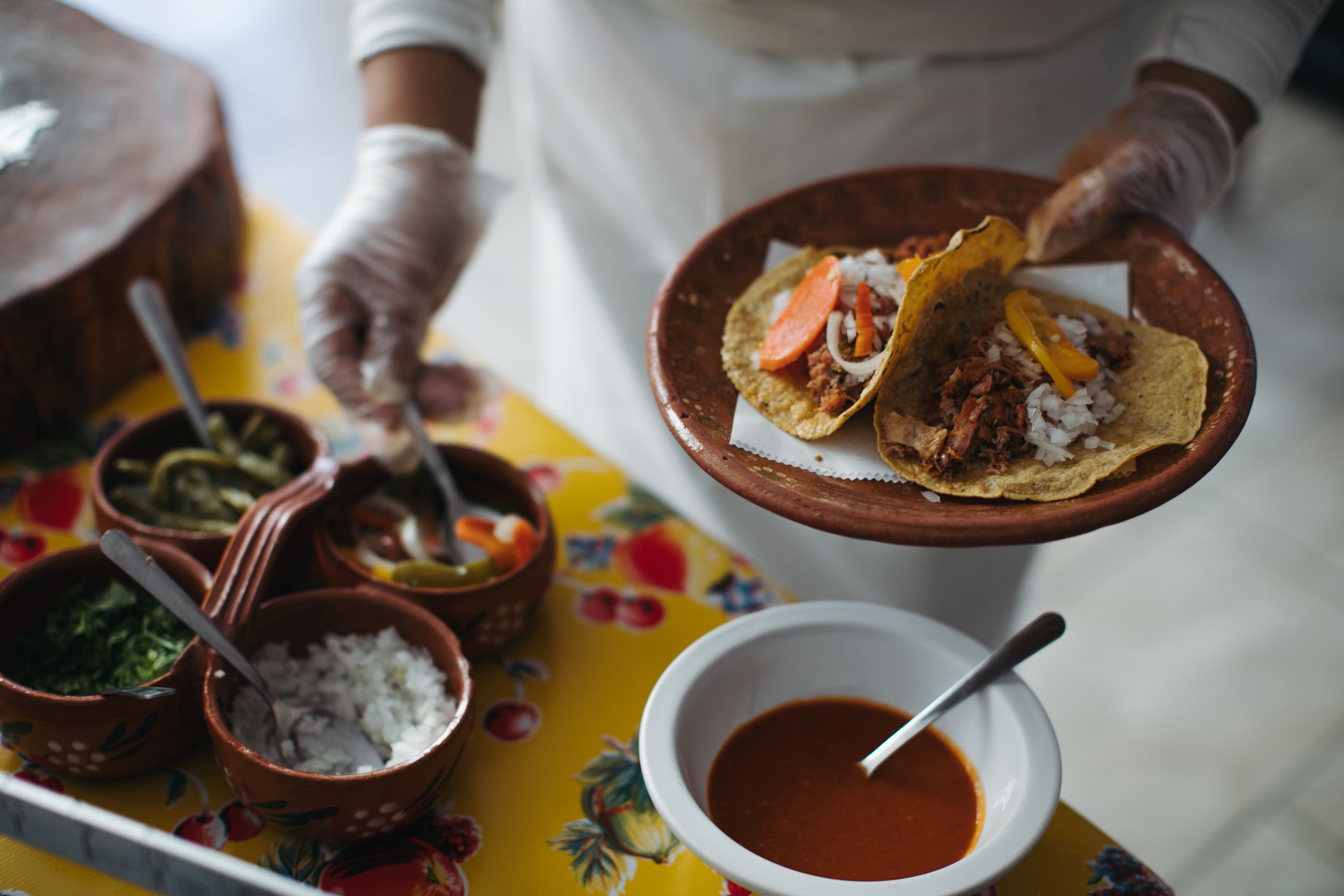
So what?s taking the place of pork as the filler in the pancita? ?The other other white meat,? Moore said. When she and Miller were talking out the problem earlier this year, Miller was already tinkering with vegetables as a replacement for pork. Moore suggested turkey, which she?s been swapping for pork for years, and it worked perfectly.
?It?s not just about being a social justice warrior,? Miller said. ?We really want to be a landing pad where people can feel comfortable and, we can feel comfortable, but we didn?t want to compromise the quality and taste. The turkey actually tastes better. The organs shine more.?
He?s right. Martinez laid a warm, house-made tortilla over a ruddy mound of pancita nueva, shaped it with a firm press of her palm, and passed it across the chopping block. ?You?re not going to find this in another Mexican restaurant,? she said.
The meat has a fine, pearly texture, the leaner turkey falling into the background like silt through a gold miner?s sifter, letting the irregular bits of offal come to the forefront. It?s delicious, but perhaps the biggest compliment is that it?s mostly indistinguishable from the original version. The main difference is not in what you?re eating, anyway, but who?s eating it: Now, anyone who wants to.
